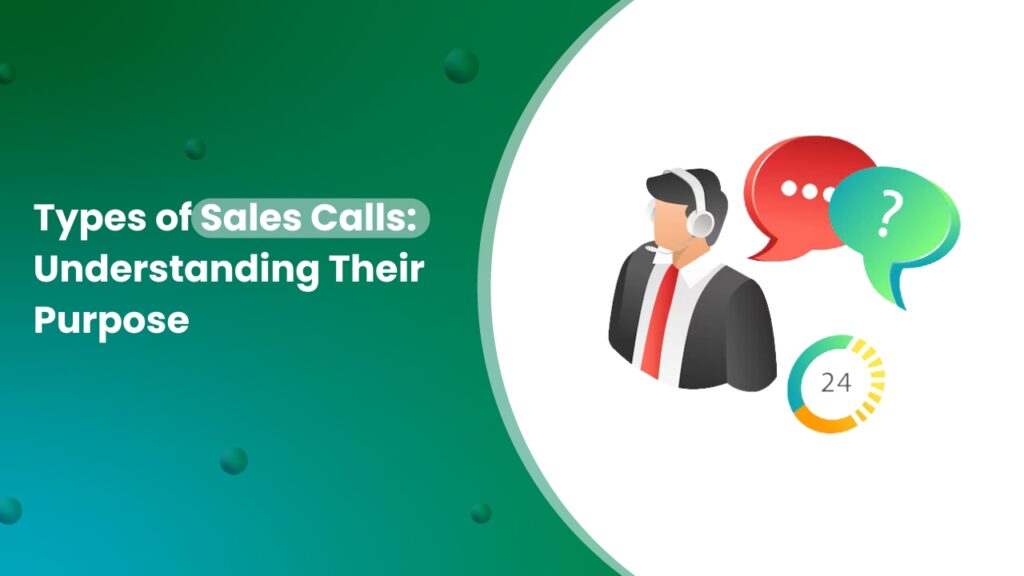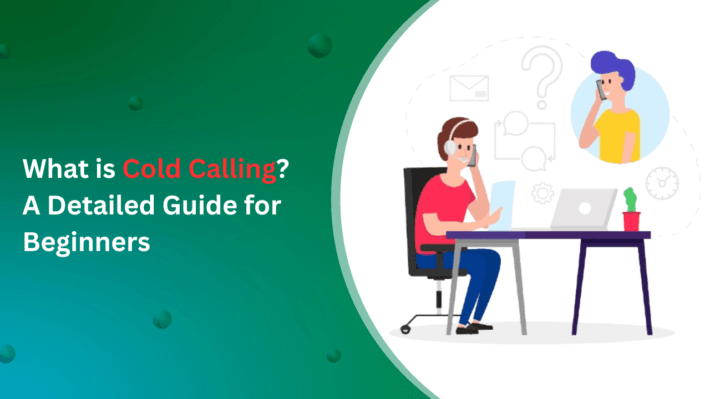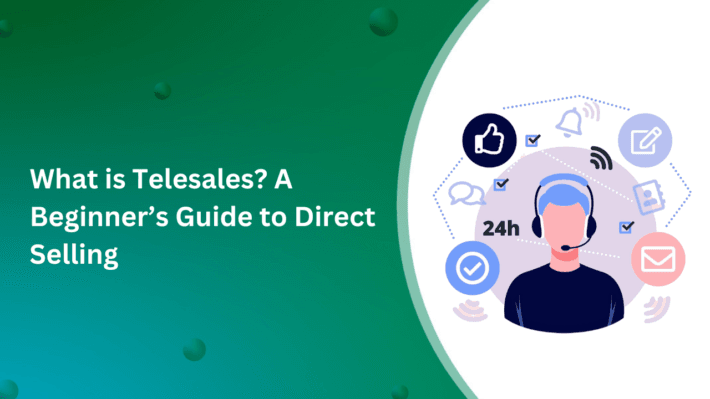Types of Sales Calls: Understanding Their Purpose

When you hear “sales call,” you might think of those annoying telemarketers who always seem to ring during dinner. But trust me, there’s so much more to it than that!
I’ve been in the sales game for a while now, and let me tell you, it’s not just about cold-calling strangers and trying to sell them stuff they don’t want. Nope, we sales folks do all sorts of calls, and each one has its own special purpose.
Think about it – sometimes we’re introducing ourselves to potential customers, and other times we’re following up after a sale to make sure everything’s going smoothly. We might be walking someone through a product demo, or even helping solve a problem they’re having.
In this blog post, I’m going to break down all the different types of sales calls for you. I bet you’ll learn something new.
1. Cold Calling: The Icebreaker
What’s it all about? Cold calling is when you reach out to someone who doesn’t know you’re coming. It’s like knocking on a stranger’s door – they weren’t expecting you, and you’re hoping they’ll give you a chance to chat.
Why do we do it? The main goal is to introduce ourselves and our product or service to new potential customers. It’s a way to expand our customer base and find people who might need what we’re selling.
Some quick facts:
- Did you know that it usually takes about 8 cold call attempts to reach a prospect? Yep, persistence is key!
- Here’s a surprise: 82% of buyers say they’ve accepted meetings after a series of cold calls. So it does work!
- But heads up – only about 2% of cold calls result in an appointment. It’s a numbers game, folks.
Tips for making cold calls less… well, cold:
- Do your homework: Learn a bit about who you’re calling before you dial.
- Have a script, but don’t sound like a robot: It helps to have an outline but keep it natural.
- Focus on helping, not selling: Think about how you can solve their problems.
- Be ready for “no”: It’s not personal, it’s just part of the game.
- Follow up: Sometimes people need a little time to warm up to you.
Cold calling isn’t about making a sale right away. It’s about starting a conversation and seeing if there’s a potential fit. Sure, it can be tough, but with practice, you might find it’s not so scary after all!
2. Warm Calling: The Friendly Follow-Up
What’s it all about? Warm calling is when you reach out to someone who already knows a bit about you or your company. Maybe they’ve visited your website, downloaded something, or a mutual friend introduced you.
Why do we do it? The main goal is to build on that initial connection. We’re trying to turn that spark of interest into a real conversation about how we can help them.
Some quick facts:
- Warm calls are about 30% more likely to lead to a meaningful conversation compared to cold calls.
- Around 50% of sales happen after the 5th contact, so follow-ups are super important!
Tips for making warm calls work:
- Refresh your memory: Remember how you’re connected to this person and mention it early in the call.
- Be personal: Use what you know about them to make the conversation relevant.
- Listen more than you talk: Ask questions and really pay attention to their answers.
- Have a clear next step in mind: Whether it’s setting up a meeting or sending more info, know what you want to happen next.
- Timing matters: Try to call when they’re likely to be less busy, like early morning or just after lunch.
warm calling is all about nurturing that initial connection. You’re not starting from scratch, so use that to your advantage! Warm calling feels a lot less pushy than cold calling, and it often leads to better results. So if you can turn a cold call into a warm one by doing a little prep work first, you’re already ahead of the game!
3. Prospecting Call
This call is all about finding potential customers who might be a good fit for what you’re selling. you’re looking for clues that someone might need your product or service.
For example, let’s say you work for a company that sells eco-friendly office supplies. You might call businesses in your area to see if they’re interested in making their office more environmentally friendly.
During a prospecting call, you want to ask questions that help you understand if this person or company could really use what you’re offering. Here are some questions you might ask:
“What kind of supplies does your office use the most?” “Have you ever thought about switching to more environmentally friendly options?” “What challenges do you face when it comes to managing your office supplies?”
The goal here isn’t to make a sale right away. Instead, you’re trying to figure out if this person is worth following up with later.
4. Sales Appointment Call
In a sales appointment call, you have the opportunity to showcase your product or service in detail, highlighting its key features and demonstrating how it can address the prospect’s specific needs. This type of call is crucial for helping potential customers visualize the practical applications and benefits of your offering.
For instance, if your company provides project management software, you might use this call to walk the prospect through the platform’s interface, demonstrating how it can streamline their workflow, improve team collaboration, and enhance overall productivity.
To make the most of this call, consider asking the following questions:
- “Which aspects of your current process are you looking to improve with our solution?”
- “Can you describe a typical project workflow in your organization?”
- “What features are most important to you in a project management tool?”
These questions will help you tailor your presentation to the prospect’s unique situation and requirements.
Pro Tip: Use Salestown CRM to make your sales process easier. It automatically records your calls, lets you make calls directly from your CRM, and tracks the progress of each customer through Pipeline. This helps you stay organized and close deals faster.
5. Follow-Up Call
A follow-up call is a crucial step in the sales process that helps maintain momentum and nurture your relationship with the prospect. This type of call typically occurs after an initial meeting or interaction and serves to address any lingering questions, provide additional information, or move the sale forward.
During a follow-up call, you might:
- Recap the key points from your previous conversation
- Address any concerns or objections that have arisen
- Provide any requested additional information
- Discuss the next steps in the sales process
To make your follow-up call effective, consider asking:
- “Have you had a chance to review the information I sent after our last conversation?”
- “What additional questions have come up since we last spoke?”
- “How does our solution align with your current priorities?”
Remember, timing is crucial for follow-up calls. You want to strike while the iron is hot, but also give the prospect enough time to process the information from your previous interaction.
Pro Tip: Salestown CRM can help you set up automatic reminders for follow-up calls. Simply set the desired follow-up date when you log your initial call, and Salestown will ping you when it’s time to reach out again.
6. Negotiation Call
This critical call occurs when you’re nearing the final stages of the sales process. It’s where you and the prospect hash out the specifics of the deal, including pricing, terms, and any special conditions. The goal is to reach an agreement that benefits both parties and sets the stage for a successful partnership.
For example, if you’re selling marketing automation software, a negotiation call might involve discussing package options, user limits, contract length, and pricing tiers. You’d work with the prospect to find a solution that meets their needs while also aligning with your company’s objectives.
To guide the conversation effectively, consider asking:
- “What’s your ideal timeline for implementing this solution?”
- “Are there any specific features or support services that are must-haves for your team?”
- “How does your organization typically structure contracts for software purchases?”
Listen carefully to the prospect’s needs and concerns, and be prepared to offer creative solutions that address their priorities while also meeting your company’s requirements.
7. Closing Call
The closing call is the final step in your sales journey – it’s where you aim to seal the deal and turn your prospect into a customer. This call is all about wrapping up loose ends, addressing any last-minute concerns, and getting a firm commitment.
During a closing call, you might:
- Recap the main benefits of your product or service
- Review the agreed-upon terms and pricing
- Answer any remaining questions
- Guide the prospect towards making a decision
For example, if you’re selling office furniture, your closing call might involve confirming the items selected, delivery dates, and payment terms before asking the client to sign off on the order.
To help move towards a successful close, try asking:
- “Based on everything we’ve discussed, do you see our solution meeting your needs?”
- “Is there anything else you need to know before we move forward?”
- “Are you ready to get started with implementation?”
The key to a successful closing call is confidence. You’ve built a relationship, demonstrated value, and addressed concerns. Now it’s time to help your prospect take that final step.
8. Post-Closing Call
A post-closing call happens after you’ve successfully closed a deal and your new customer has started using your product or service. This call is all about making sure your customer is happy and getting the most out of what they’ve purchased.
During a post-closing call, you might:
- Check if the customer is satisfied with their purchase
- Offer help with any issues they might be having
- Answer questions about using the product or service
- Ask for feedback on their experience so far
For example, if you sold a software package, you might call to see if they’ve been able to set it up properly, if they understand all the features, and if they need any extra training.
Some good questions to ask during this call are:
- “How has your experience been with our product so far?”
- “Are there any features you’re finding particularly useful?”
- “Is there anything you’re struggling with that we can help with?”
This call is super important because it shows your customer that you care about their success, not just making a sale. It can help build a strong, long-lasting relationship and might even lead to more business in the future.
9. Product Launch Sales Call
A product launch sales call is an exciting opportunity to introduce a new product or service to potential customers. This call is all about generating buzz, explaining what’s new and special about your offering, and getting people interested in trying it out.
During a product launch sales call, you might:
- Introduce the new product and its key features
- Explain how it solves specific problems or meets particular needs
- Highlight what makes it different from other products in the market
- Offer special launch deals or early adopter benefits
Some good questions to ask during this type of call are:
- “What challenges are you currently facing that our new product might help with?”
- “How does our new offering compare to what you’re currently using?”
- “Would you be interested in a free trial to see how our new product works for you?”
Enthusiasm is key in a product launch call. Your excitement about the new product can be contagious, so don’t be afraid to show how pumped you are about what you’re offering.
10. Upsell/Cross-Sell Call
This type of call focuses on expanding your relationship with existing customers by offering them additional or enhanced products and services. It’s about finding ways to provide even more value to your customers based on their current needs and usage.
For instance, if you work for a web hosting company, you might call a customer who’s using your basic hosting plan to suggest upgrading to a plan with more storage, faster speeds, or additional features like enhanced security.
During an upsell/cross-sell call, you could ask:
- “What aspects of our current service do you find most valuable?”
- “Are there any limitations you’re experiencing with your current plan?”
- “How do you see your needs evolving in the next 6-12 months?”
you’re offering solutions that can help them achieve their goals more effectively.
Remember to:
- Highlight the benefits of the upgrade or additional product
- Explain how it addresses specific challenges or opportunities
- Provide clear information on pricing and any special offers
Your goal is to help the customer see the added value in the new offering. If done well, these calls can not only increase your sales but also boost customer satisfaction by ensuring they have the best possible solution for their needs.
The Value of Different Types of Sales Calls
We’ve explored a variety of sales calls, each serving a unique purpose in the sales process. From making first contact to closing deals and following up with existing customers, these different call types help salespeople connect with prospects and clients at every stage of their journey.
Each type of call offers its own value:
- Some help you find new potential customers
- Others let you showcase your products or services
- Some are for moving deals forward
- And others help you maintain and grow existing relationships
To keep track of all these different calls and manage your sales process more effectively, consider using SalesTown Sales CRM. It can help you organize your calls, set reminders, and keep all your customer information in one place, making your sales efforts more streamlined and successful.
With these tools and knowledge at your disposal, you’re well-equipped to make the most of every sales call you make.
Happy selling!


